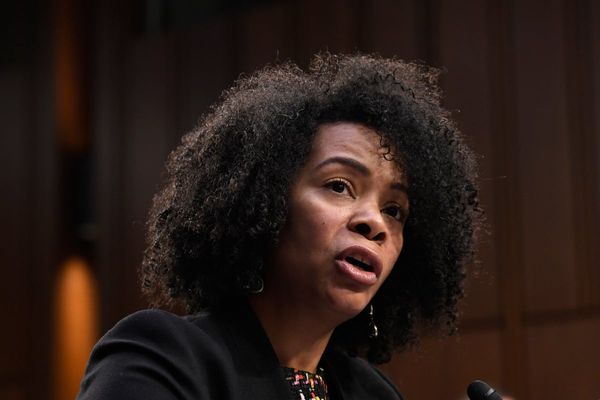
The London School of Economics (LSE) is one of the most prestigious and popular universities in the world.
In the 2019 QS World University Rankings, it was placed 8th for employer reputation and 38th overall, while the Times Higher Education rankings has it 26th in the world.
Despite being little more than 100 years old, it has already educated 16 Nobel Prize winners and no fewer than 37 current or former world leaders. Among this latter group is the current president of Taiwan, Tsai Ing-wen (蔡英文) who earned a PhD in law at LSE in 1984.

In 2018, there were another 56 Taiwanese students enrolled on courses at the LSE; 13 at the undergraduate level and 43 at the graduate level. However, by comparison, there were 1,451 Chinese students enrolled in 2018 (497 at the undergraduate level and 954 at the graduate level), giving them a markedly bigger voice in university affairs than their Taiwanese colleagues.
The undue influence China is able to wield in the international higher education space is something that has been troubling institutions and democracy activists for some time now. China’s huge population, significant economic clout, and its domestic education system which promotes Chinese Communist Party (CCP) indoctrination and a Chinese nationalist view of the world means China is effectively sending thousands of CCP activists out into the world to spread the CCP vision of how things should be.
This has certainly been the case when it comes to the question of Taiwanese sovereignty. There are numerous stories in universities from Australia to the USA, the UK to Canada, where speakers who identify as Taiwanese, Taiwanese events, or lecturers who talk about Taiwan as being a separate entity from China are shouted down by brainwashed Chinese students who believe they are defending the motherland.
This certainly seems to have been the case in this latest incident at LSE.
Sculpting a political incident
The LSE campus is located in downtown London where the Strand meets Fleet Street and Kingsway. It is a mish-mash of mostly newish and architecturally unspectacular buildings with the odd gem such as the spectacular modern library building and the rather quirky Old Curiosity Ship, the inspiration for Charles Dickens’ novel of the same name, hidden amidst these winding old London streets that most visitors bypass.
One possible reason for non-students to venture into this labyrinth is the various pieces of modern artwork that are dotted around. The latest of these, a sculpture by the British artist Mark Wallinger, was unveiled last week outside the Student Activity Centre.
Called “The World Turned Upside Down,” the piece is a globe featuring a political map of the world with geographical locations of nation-states have been inverted to show the world “from a different viewpoint.”
It has proved to be a fitting title for the piece which has certainly turned the world upside down for many of LSE’s Chinese student population for one small and simple reason. On the map, Communist China is colored yellow and label\led as the People’s Republic of China. But Taiwan is colored pink and labeled as the Republic of China (Taiwan). In other words, Wallinger’s sculpture identifies Taiwan as a separate country from China and marks Taipei as its capital city.

For most observers, there is nothing special to see here. After all, Taiwan is, for all intents and purposes, an independent nation with its own government, passports, military, currency and so on. But in Communist China, where people are taught from an early age that Taiwan is a part of the so-called “one China,” such an identification is hugely insulting and they have been shouting from the rooftops about it.
Since they first made their voices heard, the response from LSE has been extremely cautious. After initially appearing to quickly agree to change the sculpture, they issued a short statement appearing to back their Chinese students but still hedging their bets.
The statement said: “The artwork currently does not reflect our understanding of United Nations delineations that it was due to represent. We are consulting our community and considering amendments to the work. No final decisions have been reached.”

In normal circumstances, any such changes would be down to the artist, and most artists have such high artistic integrity that they would flatly refuse for their vision to be changed on political grounds.
It has been suggested that Wallinger was being deliberately provocative with his piece. He has said of himself in the past: “I'm a political animal to a degree… but I'm an artist, I think you have to be moved to make something about something.”
He has also cited nationalism as one of the subjects his artwork often addresses. In this piece, as well as the Taiwan issue, it is also notable that the capital city of Tibet, Lhasa, is also marked as a capital city, although Tibet itself is the same color as China.
But while this all suggests possible provocation, his only comment on this controversy to date has been to say: “The UN is the authority as to the names and borders. This is the world, as we know it from a different viewpoint. Familiar, strange, and subject to change.”
It is a vague statement, but there is a hidden suggestion that he does not agree that any changes need to be made.
It is perhaps also worth noting at this point that China’s economic power also makes it a considerable force to be reckoned with in the art world too and it is questionable whether even a political artist like Wallinger would want to alienate such a lucrative market for his work.
Public storm vs. political reality
The UN, of course, does not recognize Taiwan thanks to China’s influence on the UN Security Council and elsewhere. A likely escape route for the LSE and Wallinger is to change Taiwan on the map and then simply say they are following the UN’s stance of the sovereign situation.
However, there is no clean solution from the LSE’s perspective. Side with their Taiwanese students and the various other voices who have urged them to keep the Wallinger sculpture the same, and the LSE will upset a highly lucrative student market. The 2019 intake of Chinese students would, most likely, be considerably lower than the 2018 figures.
Side with the Chinese students, and the LSE will be accused of kowtowing to an authoritarian Communist regime which oppresses countless minority populations and causes considerable political and economic damage to Taiwan though its false sovereignty claims and economic bullying.
For the Chinese Communist Party, the issue is black and white. If LSE does as it says, they will forget all about it. If it doesn’t, the CCP will seek to punish LSE, most likely economically. They may ban students from attending LSE or they may seek to undermine their academic influence in some other way. They have used both techniques to get their way in the past with minimal kick-back from the governments of the home countries of affected institutions.
But for Taiwan, the impact of this saga is rather more pertinent. It has drawn the dispute over Taiwan’s sovereignty into international public awareness once more, something which has proved increasingly difficult as China’s economic clout has grown in more recent times.
Whenever the dispute over Taiwanese sovereignty rears its head, most media outlets reel out a standardized if somewhat misleading line about China considering Taiwan a “rogue” or “renegade” province, or a “self-ruled island.” Few bother to go to the effort of explaining how Taiwan is, to all intents and purpose, already a free and democratic nation-state. A nod to Taiwan having its own government is as far as most will go.
With Communist China continuing to squeeze Taiwan in the international space and pressure other countries to isolate it, any publicity which highlights Taiwan’s plight at the hands of the CCP can be considered a good thing for Taiwan. All publicity is good publicity, as the old adage goes.
In the past couple of years, international awareness of the CCP’s numerous political and human rights abuses has grown.
The brutal holocaust of Uyghur Muslims in Xinjiang has garnered global condemnation if little real action yet. The CCP’s abuse of the “one country, two systems” model in Hong Kong has drawn protests and concern from governments and rights activists. And China’s manipulation of its economy and abuse of global business practices to their own economic ends has led to a fiercely fought trade war with the United States. In this climate, Taiwan’s plight has become rather lost.
Playing into Taiwan’s hands
This is exactly why situations like this are so useful for Taiwan as long as they are played right. They put Taiwan’s abuse at the hands of China in the international spotlight and, at the same time, make the CCP out to be the petty, narrow-minded bullies they are. Regardless of the eventual outcome of this LSE saga, Taiwan will be the winner.
Why? Because China are the ones who have thrown their toys out of the pram over a statue most people would never have seen; China are the ones who have insisted that their government’s view of the world is more important than anyone else’s, and indeed more important than the political reality on the ground; and China are the ones who have proved that, yet again, they will try to use their economic power to force supposedly independent organizations to accept their world view.

No-one can look at this situation and see the Chinese perspective or the behavior of their students in a positive light, even if they have sympathy to China’s claims over Taiwan.
In contrast, Taiwan has managed this incident excellently. The Ministry of Foreign Affairs has issued measured and mature statements, Taiwan’s UK Representative Office has done the same and they have also got UK politicians who support Taiwan to rally round the cause.
But most impressive of all have been the Taiwanese students at LSE. They issued informed and passionate statements, agreed to discuss the matter with Chinese students and LSE authorities, and they didn’t throw a wobbly when LSE indicated they would be making changes.
They have portrayed Taiwan in the best possible light on the international stage behaving with dignity and maturity in the face of strong provocation and unreasonable actions. They have mirrored the performance of their government and can be proud of themselves for making this issue as high profile as it is.
The reality is that changing the statue won’t alter the fact that Taiwan operates as an independent country. It won’t alter the fact that the People’s Republic of China has no lawful claim to the sovereignty of Taiwan or that Taiwan has never been a part of Communist China. It won’t alter the fact that a large majority of Taiwanese people do not, will not, and cannot identify as Chinese no matter how much the CCP might try and force them to.
Whatever decision the LSE eventually reaches, this is a relatively small issue and it will soon be brushed under the carpet. The media cycle will continue to revolve and the debate will be all but forgotten.
But getting as much attention as possible drawn to this type of incident is vital to keep the cross-Strait issue in the international spotlight. It helps to build popular and political awareness and sympathy. It is soft power in action and, while it may not appear to make a huge difference on the face of it, behind the scenes, every little effort helps.
The views expressed in this article are those of the author and do not necessarily reflect the editorial policy of The News Lens.
Read Next: By the Numbers: Is Taiwanese Identity Declining or Thriving?
Editor: Nick Aspinwall (@Nick1Aspinwall)
If you enjoyed this article and want to receive more like it in your news feed, please be sure to like our Facebook page below.







